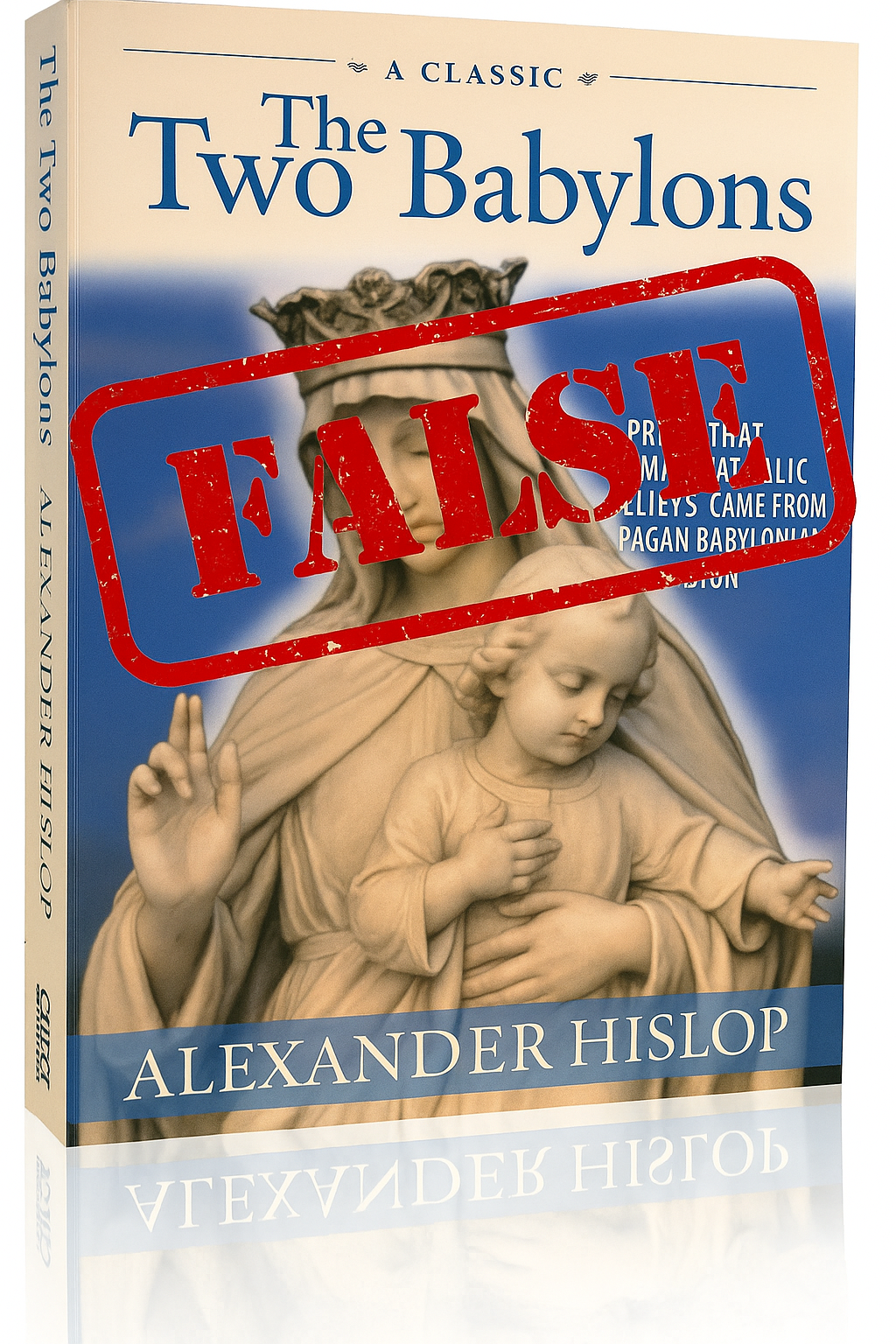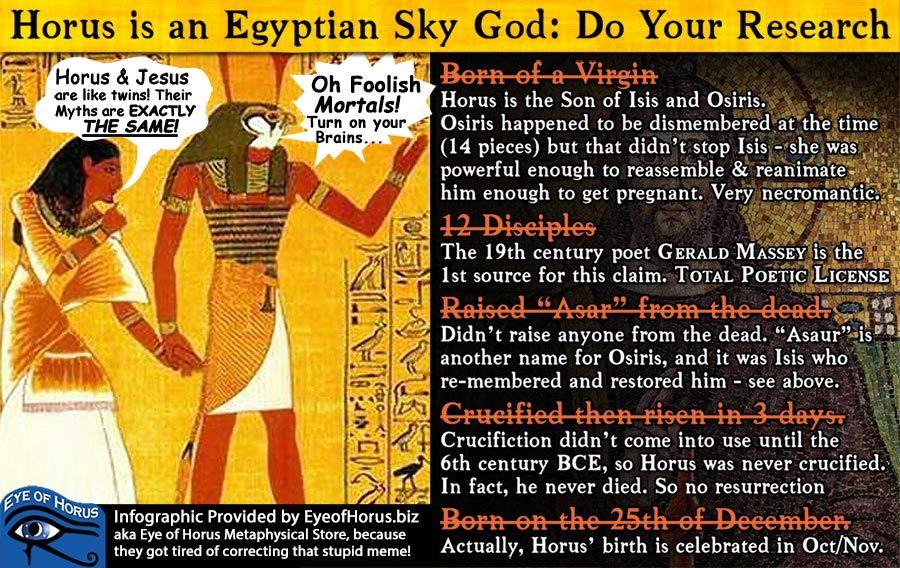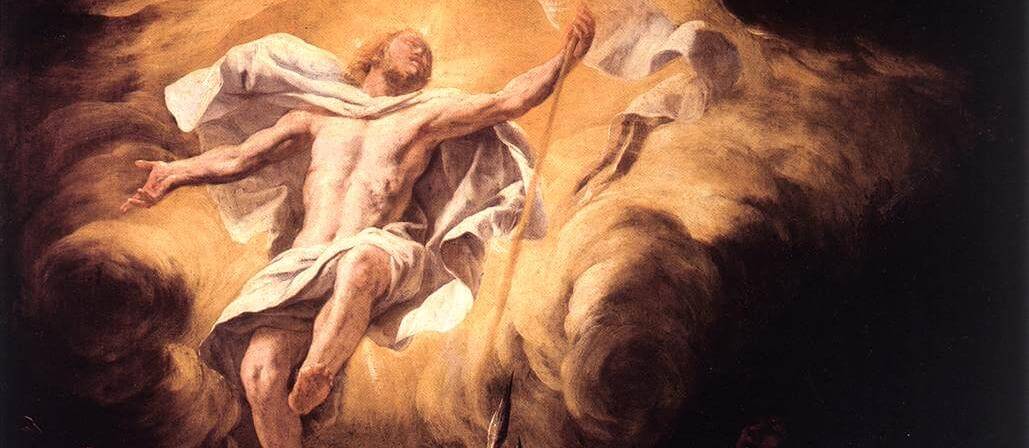Blog Group: Apologetics (18 posts)
The Two Babylons Exposed: The Book That Misled Millions
Luke J. Wilson | 21st April 2025 |
Apologetics
Over the years, I’ve encountered many Christians who’ve quoted from Alexander Hislop’s The Two Babylons as if it were a solid historical resource. The book claims that the Roman Catholic Church is not truly Christian but rather a continuation of ancient Babylonian religion. It’s self-assured and sweeping, and for many people, it seems to explain everything, from Marian devotion to Lent and Easter, to Christmas, as rooted in paganism. But is it accurate?
In short: no, it really isn’t.
Hislop’s work is a classic example of 19th-century pseudohistory — a polemical piece, written to prove a point, not to explore any historical truth.
Flawed Methods and Wild Claims
Hislop argues that most Catholic practices — from the Mass and clerical robes to festivals like Christmas and Easter — were somehow borrowed from Babylonian religion. The problem being that Hislop doesn’t rely on primary sources or credible historical data. Instead, he draws connections based on word similarities (like Easter and Ishtar) or visual resemblances (like Mary and child compared with mother-goddess statues from ancient cultures). But phonetic resemblance isn’t evidence, and neither is visual similarity.
For example, if I say “sun” and “son” in English, they may sound alike, but they aren’t the same thing. That’s the level of reasoning at work in much of The Two Babylons. Hislop often lumps together completely different ancient figures — Isis, Semiramis, Ishtar, Aphrodite — as if they were all just variations of the same deity. He then tries to say Mary is just the Christian version of this pagan goddess figure. But there’s no credible evidence for that at all. Mary is understood through the lens of Scripture and Christian theology, not through pagan myth. The earliest depictions of Mary and the Christ-child date back to the second century and do not resemble any of the pagan idols. But, again, the common accusations are based on superf...
How Old Was Jesus When He Died? A Fresh Look At The Historical Clues
Luke J. Wilson | 09th April 2025 |
Apologetics
We often hear that Jesus was “about 33 years old” when he was crucified and only had a three-year ministry. But have you ever wondered how precise that number is, or why we assume that was his age, especially when Scripture doesn’t specify?
Table of Contents
The Gospel of Luke: “About Thirty”
Early Church Testimony: Irenaeus and the Longer Ministry
Historical Anchors: Birth, Pilate, and the Crucifixion Window
The Death of Herod
Cross-referencing with Pilate, Caiaphas, and Jesus
When Did Tiberius Begin to Reign?
1. From his co-regency with Augustus (AD 11–12)
2. From the death of Augustus (AD 14)
How Does This Affect Jesus’ Age and Ministry Start?
Astronomy and the Timing of Passover
Estimated Lengths of Jesus’ Ministry
Why This Matters
In Summary
Further Reading
I’ve long wondered about this, especially when the Pharisees accused Jesus of not being close to fifty, which seems odd if he was only in his early 30s. Then I later discovered Irenaeus also had similar thoughts in the second century, and the plot thickened! I’ve had this rumbling around in the back of my mind for a few years now and slowly chewed it over. So now I’m going to try and present the evidence, rather than rely solely on tradition and assumptions, and piece together what the Gospels, early Church Fathers, historical data, and even astronomy can tell us about the potential age of Jesus and the length of his ministry.
What follows is a deeper, richer look at the life and death of Jesus and what we can learn by following the evidence.
The Gospel of Luke: “About Thirty”
Luke 3:23 tells us plainly:
Jesus was about thirty years old when he began his work.
This statement has historically been the anchor point for dating Jesus’ ministry. Most take this to mean he was around 30 at his baptism, which marked the beginning of his public ministry. Something to bear in mind here is that Luke isn’t exact and only says “about thirty”, so...
From Paradise to Presents: The Christian Story Behind the Christmas Tree
Luke J. Wilson | 23rd December 2024 |
Apologetics
The Christmas tree is one of the most recognisable symbols of the festive season, adorning homes, churches, and public spaces with its evergreen beauty. But where did this tradition originate, and how did it become a central feature of Christmas celebrations? Looking into the history of the Christmas tree has turned out to be a fascinating historical story woven from various cultural and theological strands.
The Paradise Tree and the Feast of Adam and Eve
The connection between the Christmas tree and the Feast of Adam and Eve offers a large clue into its origins. In medieval Europe, December 24th was observed as the feast day of Adam and Eve, a commemoration tied to their expulsion from Eden. One of the most notable elements of this feast was the “Paradise Tree,” used in mystery plays and home displays to symbolise the Tree of Knowledge in the Garden of Eden.
These trees, typically evergreen, were decorated with apples to represent the forbidden fruit and wafers symbolising the Eucharist. This imagery reflected both humanity’s fall into sin and God’s redemptive plan through Christ. The Paradise Tree served as a visual catechism of sorts, teaching the story of salvation from the Fall to the Redemption. In a later tradition the wafers were replaced by cookies of various shapes, and candles, symbolic of Jesus as the light of the world, were often added to the trees.
Pre-Christian Traditions and the Evergreen
Evergreens have long been associated with life and resilience in the darkest days of winter. In pre-Christian European traditions, evergreen boughs were used during festivals like the Roman Saturnalia and the Germanic Yule. These practices celebrated the endurance of life through the cold and darkness, offering hope of the spring to come. While these customs were not inherently Christian, they provided a cultural framework that could be adapted to Christian theology.
The evergreen tree, in this context, became a symbol of eternal life in Christ, as su...
Debunking the Crusades: 5 Myths You Probably Believe
Luke J. Wilson | 14th October 2024 |
Apologetics
The Crusades have long been a topic distorted by myth, legend, and misconception, especially in modern pop culture and film. Movies and television often portray the Crusaders as either valiant knights on holy missions or brutal barbarians bent on conquest, feeding into a skewed image of the events. These simplistic portrayals fail to capture the complex motivations and historical realities of the Crusades.
The Guardian article about the Reconciliation Walk
One striking example of how these misunderstandings have influenced modern perceptions was the so-called Reconciliation Walk in 1999, marking the 900th anniversary of the First Crusade. Hundreds of Christians walked from Germany to the Holy Land to apologise for the actions of their ancestors, with some wearing t-shirts that read “I apologize” in Arabic. While well-intentioned, the walk was unnecessary and based on a misreading of history. The actions of Crusaders, though often violent, must be understood in their medieval context — marked by political, religious, and social complexities that differ greatly from today’s values. Apologising for historical events centuries after the fact, particularly when based on simplistic views, overlooks these nuances and can reinforce myths rather than dispelling them.
Here are five common myths about the Crusades, along with the historical truth behind them:
Myth 1: The Crusades were an unprovoked attack by Christians on a peaceful Muslim world.
Truth:
While it’s true that the Crusades were initiated by the Latin Christian West, they were largely in response to Muslim expansion. By the time of the First Crusade in 1096, much of the Christian world had already been conquered by Muslim forces, including regions such as Syria, North Africa, and most of Spain. The Seljuk Turks’ advance into Byzantine territory (a Christian empire) and the capture of Jerusalem were major catalysts for Pope Urban II’s call to arms. The Crusades were framed as a defens...
Jesus, Yahweh, And The Power Over The Storm
Luke J. Wilson | 29th July 2024 |
Apologetics
Critics of Christianity will often make the claim that Jesus never said he was God or divine in the Gospels. The problem comes when they set unrealistic demands and expectations, like wanting a chapter and verse where Jesus says, “I am God, worship me”. But this isn’t how the Bible works and definitely not how Jesus went about his ministry.
Throughout the Gospels, there are clear connections that reveal the true nature of Jesus in ways that would have been obvious to the Jewish people and leaders of his day who were very familiar with the Torah and other Scriptures we now call the Old Testament. One of the most striking examples is His demonstration of power over the storm and sea, which directly links Him to Yahweh as depicted in the Psalms and other Old Testament scriptures.
The Calm in the Storm: Psalms 107:28–29
The Psalms often depict Yahweh as the sovereign Lord over creation, commanding nature with His word. Psalms 107:28–29 provides a vivid picture of this divine authority:
Then they cried to the LORD in their trouble,and he brought them out from their distress;he made the storm be still,and the waves of the sea were hushed.
In these verses, Yahweh’s power is evident. The psalmist recounts how those in distress cry out to the LORD, and He responds by stilling the storm, bringing calm to the raging seas. This act is not just a display of power but a revelation of His compassion and sovereignty over the natural world.
This passage is reminiscent of the story of Jonah, where God’s interaction with the sea is also highlighted but in a contrasting manner. Jonah, fleeing from God’s command, causes a storm by his disobedience:
But the LORD hurled a great wind upon the sea, and such a mighty storm came upon the sea that the ship threatened to break up. (Jonah 1:4)
The sailors, in distress, cry out to their gods and eventually to the LORD, and the storm ceases only when Jonah complies with God’s will by being thrown into the sea:
Then they ...
Keeping Christ in Xmas
Luke J. Wilson | 15th November 2023 |
Apologetics
The abbreviation “Xmas” often sparks discussions about its origins and whether it diminishes the significance of Christmas. Contrary to misconceptions, the use of 'X' in "Xmas" has deep historical roots dating back to ancient Greek, where it represents the first letter of “Christ” (Χριστός). Additionally, the Chi Rho symbol, formed by superimposing the Greek letters Chi (Χ) and Rho (Ρ), is a notable Christian symbol representing Christ.
The Origins of "Xmas"
The letter ‘X’ in “Xmas” finds its roots in the Greek letter ‘Chi’ (Χ), which abbreviates the word “Christ” in Greek. This practice of using ‘X’ as an abbreviation for ‘Christ’ dates back to early Christian manuscripts and reflects linguistic traditions rather than any modern attempt to secularise Christmas or “take Christ out of Christmas”, as people like to claim with the whole “war on Christmas” stuff you see and hear about around this time of year.
Historical Usage
The Chi Rho page in the Book of Kells
While distinct from “Xmas”, the Chi Rho symbol holds significance in Christian iconography. The symbol is often found in early Christian manuscripts, with one notable example being the “illuminated” (meaning highly decorated) Chi Rho page in the Book of Kells, a 9th-century Irish manuscript of the Gospels. Early Christian catacombs, inscriptions, and artefacts also feature the Chi Rho symbol, serving as a visual representation of the Christian faith.
The Chi Rho Symbol
The Chi Rho symbol, a monogram for Christ, combines the Greek letters Chi (Χ) and Rho (Ρ). This symbol has been employed in various contexts, including manuscripts, frescoes, and architectural elements of Christian basilicas and churches (and as the logo for this website). Its use spans different regions and periods, reflecting the symbol's enduring significance in Christian history.
The Chi Rho symbol
Understanding the linguistic history of “Xmas” and the symbolism...
Was Jesus worshipped in the New Testament?
Luke J. Wilson | 14th November 2023 |
Apologetics
Often a claim from critics of the faith, and especially Muslims arguing against Christianity, is that Jesus wasn't thought of as God early on and more to the point, wasn't ever worshipped in the accounts of the New Testament.
This is a very cursory look at a few places within the Gospels where Jesus was clearly worshipped, either by his followers or others he encountered, and didn't rebuke or correct people for doing something wrong.
Worshiping Jesus:
1. Matthew 14:33 - The Proclamation of Divinity
And those in the boat worshiped him, saying, “Truly you are the Son of God.”
In the aftermath of a storm on the Lake of Galilee which Jesus calmed with a word, the disciples, awestruck, worshiped Jesus, acknowledging, "Truly you are the Son of God". This moment captures the essence of recognising and bowing before the divine presence.
2. Matthew 28:9 and 28:17 - Post-Resurrection Adoration
Matthew 28:9 Suddenly Jesus met them and said, “Greetings!” And they came to him, took hold of his feet, and worshiped him.
Matthew 28:17 When they saw him, they worshiped him, but they doubted.
In the dawn of the resurrection, women, and disciples alike encountered the risen Christ, seizing his feet in worship. Even amidst doubt, worship persisted, displaying that even in disbelief, Jesus accepted worship.
3. Luke 24:52 and John 9:38 - Worshiping with Joy and Belief
Luke 24:52 And they worshiped him and returned to Jerusalem with great joy
John 9:38 He said, “Lord, I believe.” And he worshiped him.
In Luke we see that the disciples all worshipped Jesus at his ascension, and in the instance in John, the man born blind who had been healed turned and worshipped Jesus when he realised who he was. Another example where Jesus didn't turn away worship towards himself from others.
A Glimpse into Early Criticism
The early second-century Roman governor and historian Pliny the Younger wrote a letter to Emperor Trajan around 112 AD. In this letter, Pliny des...
Jesus, Mithras and Ancient Roman Cults: Separating Fact from Fiction
Luke J. Wilson | 25th April 2023 |
Apologetics
Welcome to the next instalment of my series looking at the ancient mythological gods and how they compare to the life, death and resurrection of Jesus. Mithras is yet another popular ancient god that people like to compare with Jesus and make wild claims about, proposing that they are the same deities with different names. But is this even remotely true?
This article has ended up being a bit longer than anticipated as it’s one of the few ancient religions that was contemporary to the birth of Christianity which was seen as somewhat of a rival belief system, so there’s a lot of interesting things to cover!
The Origins
Mithras has his roots in ancient Persia, where he was known as Mithra, a god associated with the sun and light. The Romans adopted and adapted Mithras into their own religious pantheon, creating the secretive cult of Mithras, which was particularly popular among Roman soldiers, who admired his association with bravery, strength, and the sun. The idea of the blood sacrifice of the bull feeding the earth also played a role in the minds of the soldiers shedding their own blood on the battlefields.
The earliest literary references we have to Mithraism are between AD 80–100 from Latin poet Statius, and also from Plutarch, a Greek philosopher and priest. Ulansey’s hypothesis (The Origins of the Mithraic Mysteries: Cosmology and Salvation in the Ancient World.) suggests that Mithraism was introduced around 60 BC by captured pirates from Asia Minor, where it was associated with the Perseus myth. This idea highlights the idea that Mithraism was a fusion of numerous diverse beliefs and symbols.
Birth Stories
The birth of Mithras is quite intriguing; he was born from a rock or stone, fully formed and wearing a Phrygian cap, often holding a torch or a dagger. This miraculous birth is known as the “petra genetrix” or the “rock-born.” Jesus’ birth is celebrated by Christians as a divine miracle, with the virgin Mary giving birth to him in a hu...
Horus, Jesus, and Egyptian Mythology: Separating Fact from Fiction
Luke J. Wilson | 22nd April 2023 |
Apologetics
If you've ever found yourself immersed in the world of ancient Egyptian mythology or perhaps watching a documentary on the subject (or even just browsing social media around Christmas time), you might have come across the claim that the story of Jesus shares striking similarities with the story of Horus, an ancient Egyptian deity.
While it might seem convincing at first that there's a direct connection between the two, it's essential to understand that the similarities are often exaggerated in popular culture, and many scholars consider them vastly different. In this article, we'll explore the life of Horus, his birth, the miracles he performed, and the truth behind the alleged similarities between Horus and Jesus.
The (non-virgin) Birth of Horus
Horus, the falcon-headed god of the sky and kingship, has an intriguing birth story that never fails to capture people's imagination. In ancient Egyptian mythology, Horus is the son of Osiris, the god of the afterlife, and Isis, the goddess of magic and healing. Osiris was murdered by his jealous brother Set, who dismembered his body and scattered the pieces throughout Egypt.
Isis, determined to bring her husband back to life, searched for and reassembled Osiris' body parts. Using her magical powers, she temporarily revived Osiris, and during this brief period, she conceived Horus without engaging in sexual intercourse by taking the form of a bird and hovered over Osiris' reassembled body, receiving his “seed” and becoming pregnant with Horus. Afterward, Osiris died again and descended to the underworld, where he became the god of the afterlife. This miraculous conception has led some people to draw comparisons between the birth of Horus and the virgin birth of Jesus, although once you consider how Horus was conceived, it becomes clear that there are no real similarities at all. There's also no connection to December 25th with Horus.
Horus' Miraculous Life
As a powerful god, Horus was believed to perform various...
26 Differences Between Muhammad and Jesus
Luke J. Wilson | 17th October 2022 |
Apologetics
If you’ve ever spent any time online, either in random Facebook comment threads or reading the news, I’m sure you’ve come across the claim that Islam and Christianity are basically the same and that “we all worship the same God”, getting lumped together as an “Abrahamic religion” along with Judaism.
Muslims claim Islam “is the completed final version of the previous messages originally revealed to Moses and Jesus” which came to “correct the deviations of Christianity”, which had apparently become corrupt by the seventh century when Muhammad came along.
But for something which is meant to come from the same God at its core, it would suggest that God got pretty much everything central wrong in the teachings of Jesus (and the prophets) since what Muhammad taught and lived like is very different. To add more suspicion to it, Muhammad claims to have received the Qur’an from an angel, which would conflict with what Paul warned about: “But even if we or an angel from heaven should proclaim to you a gospel contrary to what we proclaimed to you, let that one be accursed!” (Gal 1:8). I’ll add more commentary at the end, so without further ado, here are 26 differences for your consideration:
Muhammad said Allah hates those who don’t accept Islam. (Qur’an 3:32, 22:38, 30:45).
👉 Jesus said God loves everyone, and he came to lay down his life for the world. (John 3:16; 10:11; 16:27; 1 John 3:16; 4:7–8)
Muhammad said, “I have been commanded to fight against people till they testify that there is no god but Allah, and that Muhammad is the messenger of Allah” (Muslim 1:33)
👉 Jesus said, “He who lives by the sword will die by the sword.” (Matthew 26:52) and, “But I say to you: Do not resist an evildoer. But if anyone strikes you on the right cheek, turn the other also” (Matthew 5:9)
Muhammad stoned women for adultery. (Muslim 4206)
👉 Jesus said, “Let he who is without sin cast the first stone.” (Jo...
Does Easter Have Pagan Origins?
Luke J. Wilson | 22nd March 2021 |
Apologetics
Much like any major Christian holiday, there are the usual arguments and accusations about how it’s all just pagan festivities with a “Christian mask”. Easter is no different, and usually gets hit the hardest over its so-called “pagan roots”, or in the month or so preceding it, Lent being some “invention of the Catholic Church”.
Table of Contents
The Lenten Fast
The Easter controversy and why we celebrate it when we do
Is the Name “Easter” really the Anglo-Saxon goddess Eostre?
Chocolate eggs and bunnies?
Concluding Thoughts
Further Reading and Sources
I like to try and observe Lent, as it is one of the most ancient customs in the Church, which led me to researching its origins, along with the Easter celebration, to see where they have their basis. Unsurprisingly, it turns out that many of the accusations against Easter and Lent as “pagan” are either fabricated or are just misinformation. So let’s examine the different aspects of Easter to see how we got from Passover to resurrection, to little bunnies and chocolate eggs!
The Lenten Fast
A forty-day fast prior to Easter has been a long-established practice within the Church, dating back to possibly within the first century. This is well established from ancient letters we still have available, such as from Irenaeus in the second century:
For some consider themselves bound to fast one day, others two days, others still more. In fact, others fast forty days … And this variety among observers [of the fasts] did not have its origin in our time, but long before in that of our predecessors.–Irenaeus (c.180)
Notice here that Irenaeus mentions that this was a practice passed onto them by their “predecessors”, a term often used in conjunction with the Apostles themselves, or those who immediately came after them, putting the origins of this Lenten fast much earlier than when Irenaeus wrote in 180, and also possibly having Apostolic origin.
The Easter controversy ...
Does Christmas have pagan origins?
Luke J. Wilson | 19th December 2019 |
Apologetics
For most people, the question of the origins of Christmas is probably far from their minds. Some may recognise and give a cursory glance towards the Biblical narrative on the birth of Jesus as something to do with it (although a 2017 study showed that almost 1 in 20 Brits thought Easter was the birth of Jesus!);—but in some Christian circles the question (accusation?) that “Christmas is pagan” is at the forefront of their minds.
Table of Contents
When was December 25th celebrated?
The Christian Calendar
Concluding Thoughts
Bonus Information
Further Reading & Sources:
As time goes on and we move further and further into the future, away from the initial events of the first Nativity, the festival of Christmas has morphed into something altogether different than how the first Christians recognised and celebrated it (if they even did).
We know from historical records and study now that a lot of what has been incorporated into the festivities surrounding Christmas does have pagan origins, but does that make the holiday itself still pagan today? Are you inadvertently worshipping “the birthday of the Unconquered Sun” (Dies Natalis Solis Invicti) when you celebrate on the 25th of December?
Let’s trace a little bit of history and see how the early church viewed these festivals, as they were still happening in full force whilst the Church was still young and were a contemporary concern, and what date they pinned the birth of Christ on to.
Much of the earliest references to the Nativity occur in a passing way as a commentary on the event rather than anything celebratory about it. Justin Martyr in his First Apology (~160 AD) mentions that Jesus was born 150 years before him, in the time of Quirinius (or Cyrenius as some translations have it – cf. Luke 2:2), where his readers could “ascertain also from the registers” the accuracy of his statement. Tertullian (197 AD) also references this census as a place where “Mary is described�...
Former Muslim Explains the Trinity
Luke J. Wilson | 09th February 2018 |
Apologetics
I saw this video doing the rounds on Facebook, and thought it was too good not to share here as well.
Very few people tend to articulate the Trinitarian doctrine well enough to: a) still make sense, and b) not slip into heresy. Just reading the comments section on this video proves point b) quick enough, with many people giving their take on it (and usually espousing some form of Modalism).
I won't make a big post on the Trinity now, but I may do one soon off the back of this one, as it's clearly still something believers (and non-believers) struggle to understand, or explain without heresy!
For now though, sit back and take about 5 minutes to listen to this former Muslim explain one of the core beliefs of Christianity very well:
Some additional information: The man in the video is Nabeel Qureshi who has wrote a few books on his journey to Jesus from the Muslim faith; one of them being: Seeking Allah, Finding Jesus. He also has sadly died in 2017. I haven't read his books, and only just found out about him after looking up more info on this video, though his book is definitely on my wish list now....
Jesus was a pagan copy, and other Christmas myths
Luke J. Wilson | 24th December 2017 |
Apologetics
It's that time of year again when certain groups of people like to share memes and videos that apparently "prove" Jesus to be a carbon-copy of ancient Egyptian gods.
This has been debunked so many times, yet it's still so pervasive on social media, mindlessly shared over and over again. This myth about Jesus being a copy of other pagan "dying-and-rising gods" doesn't have its roots in Egyptian legend, but rather in the claims of a film called Zeitgeist.
A quick search online will bring up many websites which have gone through the claims of this film with a fine tooth comb, and debunked each one. Here's one such example, which lists out the major claims and gives a detailed response to each: Analysis and Response to Zeitgeist Video.
To quote a pertinent part of the above website, Dr Norman Geisler, a Christian systematic theologian and philosopher, gives a good response to the major claims against the resurrection:
Dr. Norman Geisler, author or coauthor of more than 80 books, writes, “The first real parallel of a dying and rising god does not appear until A.D. 150, more than a hundred years after the origin of Christianity. So if there was any influence of one on the other, it was the influence of the historical event of the New Testament [resurrection] on mythology, not the reverse.
If you don't want to read a long essay on the subject though, this video by Inspiring Philosophy breaks it down nicely in just under 5 minutes:
Other myths debunked
If not Osiris, Jesus is often claimed to be copied from the Egyptian god Horus... or the Roman god Mithras (fun fact: the Mithras cult actually ended up trying to mimic aspects of Christianity, not the other way around!). Apparently, everyone just copied whoever came before them, and hoped no one would notice!
All of these claims are equally as nonsensical as the others and have "facts" which are completely fabricated to push an agenda of causing Christianity disrepute, or give an excuse not to take the New T...
Evidence of the Trinity in the Hebrew Scriptures
Arnold Fruchtenbaum | 08th November 2017 |
Apologetics
Table of Contents
Jewishness and the Trinity
1. God Is A Plurality
The Name Elohim
Plural Verbs used with Elohim
The Name Eloah
Plural Pronouns
Plural Descriptions of God
The Shema
II. God Is At Least Two
Elohim and YHVH Applied to Two Personalities
III. God Is Three
How Many Persons Are There?
The Three Personalities in the Same Passage
Conclusion
New Testament Light
I was recently in some discussions/debates online about the nature of God and whether the "Trinity" exists, or if God is purely singular and exists in different forms rather than different persons.
This idea that God has different "forms" or "modes" is what is known as Modalism (also sometimes called Sabellianism). This doctrine was condemned as heresy by Tertullian around 213 AD, and later by the bishop of Rome around 262 AD. A more modern sect of Christians, often called "Oneness Pentecostals", still hold to this heretical doctrine today.
Now, to be clear: I do believe in the Trinity and accept that it is the orthodox position to hold. But that doesn't mean I've always fully grasped the concept. This is something Christians have struggled to define for centuries, hence the sometimes confusing and lengthy language of the creeds (see here, here, here and here for example).
So after reading this debate online with some Oneness believers, I decided to look more into the Trinity to try and get my head around it as much as possible.
On my searching and reading, I came across an article by Arnold Fruchtenbaum on the Jews for Jesus website. He had taken the time to really look into the Tri-unity of God from a Jewish/Hebrew perspective to bring some clarity to the issue.
I found the article to be very helpful for my own understanding, and very illuminating to see the plurality of God in oneness hidden within the Hebrew language, something that is often lost in translation to our English bibles.
I'm no Hebrew scholar, so rather than try (and probably fail)...
Is Halloween a Pagan Holiday?
Luke J. Wilson | 30th October 2017 |
Apologetics
It's that time of year when you begin to see various articles and debates online about Hallowe'en, and whether it's entirely pagan in origin and the Church "stole it"; or if it's something that Christians should even have any part in.
Table of Contents
Origins of the holiday
Aren’t there pagan roots?
What about “Trick or Treat”, costumes and pumpkins?
In conclusion
To some people, the answer is a straightforward “no”, while others say it falls into the realm of Christian freedom and personal discernment. But what about if you're unsure or somewhere in the middle of those two positions, how should you decide what is the right thing to do?
We can all see that the modern celebration of Halloween is focused quite heavily on darkness and evil beings. Here in the UK, it's not quite so prevalent; it seems more like an excuse for adults to dress up and have a party as much as the kids do (although with more alcohol involved). American society has really taken the holiday to its extremes with some of the decorations I've seen online and on TV and in films, to the point that suicide and murder victims left in public view have been mistaken for scary props!
Origins of the holiday
Has Hallowe'en always been like this though? Let's take a look at its origins to see where this holiday comes from to help us decide whether we should partake or not.
Did you know that Hallowe'en actually started out as a Christian holiday (Holy Day)? “Hallowe’en”, or more precisely, All Hallows Eve (from the Old English hallowed meaning “holy”), is an ancient holiday in the Christian calendar to mark the day before All Saints Day on November 1st.
All Saints Day is a day to celebrate and remember the martyrs and all those who have died and gave their lives for the Faith. Originally, this yearly festival began in the 7th century when Pope Boniface IV consecrated the Pantheon, a Roman temple to the gods. This then became a church called St. Mary of the Martyrs, and...
The Resurrection as a historical event
Luke J. Wilson | 29th April 2017 |
Apologetics
Table of Contents
Jesus was raised bodily – and historically
The resurrection is what makes Christianity unique!
Evidence from Paul
The mystery of the resurrection
The nature of the resurrection
The resurrection is more than physical
What with Easter still ringing in our ears, I thought it would be a good time to revisit the topic of resurrection, but from a historical standpoint and why we can trust it as a real, world-changing event. So, what really is the resurrection? How will we be resurrected, and what does it mean for us that Jesus rose again? Let’s explore what this means for us as Christians, and see what the Scriptures say.
Jesus was raised bodily – and historically
Let’s look at the way Jesus was resurrected first, since he is the “firstfruits” of the resurrection (1 Cor 15:20-23).
The historical, bodily resurrection of Christ is central to our faith. Without it, we may as well pack up and go home, which Paul makes clear to the Corinthian church:
1 Corinthians 15:12-15
Now if Christ is proclaimed as raised from the dead, how can some of you say there is no resurrection of the dead? If there is no resurrection of the dead, then Christ has not been raised; and if Christ has not been raised, then our proclamation has been in vain and your faith has been in vain. We are even found to be misrepresenting God, because we testified of God that he raised Christ—whom he did not raise if it is true that the dead are not raised.
I saw a survey recently about this very topic, which suggested that a worrying amount of self-identifying Christians in Britain don’t believe that the resurrection of Jesus happened at all!
Fewer than one-in-three Christians in Britain believe “word-for-word” the Biblical story of Jesus rising from the dead … A survey for the BBC carried out to mark Palm Sunday found that 23 per cent of those calling themselves Christians “do not believe in the resurrection of Jesus from the dead” at all. [S...
Does Jesus mean Hail Zeus?
Luke J. Wilson | 13th June 2016 |
Apologetics
A meme doing the rounds on the internet
You may not have come across the image above before, or the similar variants of it, but it pops up on social media groups every so often. The underlying argument is quite ridiculous, but there does seem to be a sub-culture with Christianity which promotes this as fact quite vigorously. Having seen this get shared at least three times on Facebook in the last month, I decided to add a new category to the blog: Apologetics.
In here will be articles for defence of the faith, though sadly this particular one needs to be against those who are already meant to be a part of the same faith! But many people seem to accept these memes as truth without any further research, so here’s my quick apologetic against Jesus being some pagan deity name for “Zeus”.
No, Jesus doesn't mean "hail Zeus"
The whole argument hinges on the sound of the suffix “sus” being similar to “Zeus” and is apparently also the Latin word for the Greek god’s name, and the “Je” meaning “Hail”, therefore Jesus means “Hail-Zeus”. The whole 'argument' shows a total lack of even very basic knowledge in ancient languages which can be found from multiple sources online. See the image to the right for a breakdown of the Greek words for "hail" and "Zeus".
Another, similarly blasphemous argument, goes further to say that “Je-Sus” is a compound word, and that it means “Earth Pig” because in Latin, “sus” means “pig” or “swine” and the “Je-” means earth in Greek. Whilst the Latin part is technically correct the whole argument is wrong. For a start, “Earth” in Greek is γῆ (Ge) – there is no “J” letter, and the Greek letter gamma doesn't transliterate into a "J" either.
Secondly, “Jesus” isn’t a compound word (two separate words to make one single word). It comes from a single Greek word Ιησούς. And lastly, you can’t prefix a Latin word with ancient Greek word and say it has some sensible ...



















